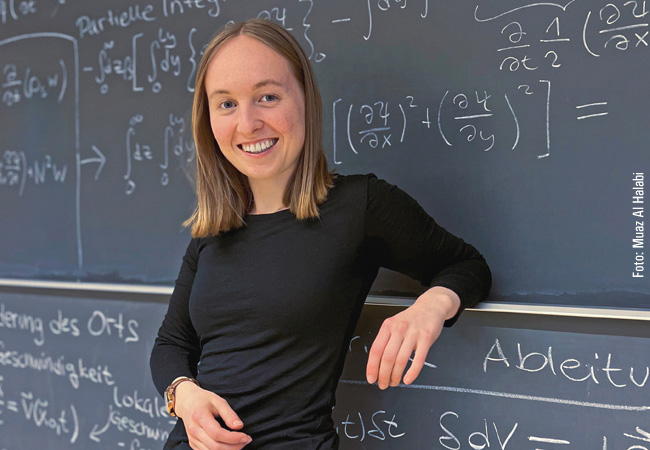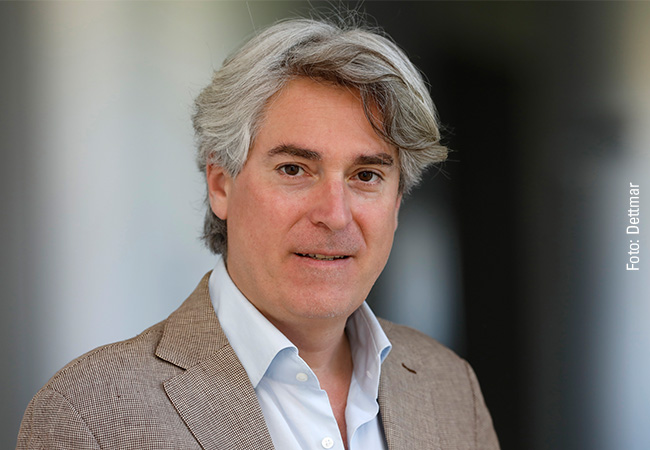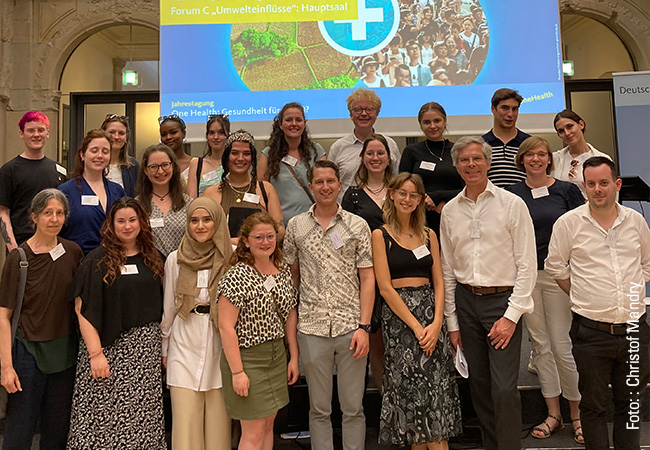Goethe University’s Physics Faculty is offering two new exciting and highly topical emphases in its bachelor’s degree course, in cooperation with the Faculty of Geosciences and Geography: Starting this upcoming winter semester 2023/24, “Atmosphere and Climate” as well as “Geophysics” will become part of the existing program.
The bachelor’s degree in physics focuses on research, both basic and more advanced. Students who choose to enroll will learn about all the important fundamentals of physics, including theoretical physics and mathematics as well as experimental physics, from classical physics to quantum mechanics and statistical physics. In response to the noticeable increase in interest in natural phenomena and crises, two new areas of specialization have now been introduced:
How can the Earth’s ever-variable atmosphere – with clouds, turbulence, and weather – be explained? How does climate change occur? The new focus on “Atmosphere and Climate” provides physics students with insights into meteorology as a field of applied physics that affects both atmosphere and climate. The course covers experimental and theoretical foundations, from cloud physics to fluid mechanics to climate dynamics. Equipped with this knowledge, students will be able as part of their bachelor’s thesis to participate in the development of measurement instruments, in measurements in the laboratory, or in measurement campaigns by aircraft, as well as in the development of numerical atmospheric models and the use of such models in weather forecasting or climate modeling. “This new focus in the BSc Physics is unique in Germany. It offers students the opportunity of studying physics in all its theoretical depth, while at the same time also acquiring a thorough knowledge and methodological base in the physics of the atmosphere and climate, complete with a wide range of follow-up opportunities in climate and weather research,” emphasizes Prof. Ulrich Achatz from Goethe University’s Institute for Atmospheric and Environmental Sciences.
A part of earth system research, geophysics constitutes the scientific basis for highly topical issues in the field of natural hazards, including in connection with natural and induced earthquakes as well as volcanism. The impetus for these processes near the Earth’s surface comes from dynamic processes in the Earth’s deep interior. Part of the curriculum involves developing a quantitative understanding of the corresponding interactions through measurements (both in the field and in the laboratory), as well as model calculations. Geophysical exploration techniques also play an important role in resource exploration. “By combining fundamental concepts of physics with deep insights into Earth-related processes, the new focus on ‘Geophysics’ provides a strong foundation for the study of natural phenomena, such as volcanism and earthquakes, which are proving increasingly important in our rapidly changing world,” says Prof. Georg Rümpker of the Institute of Geosciences.













